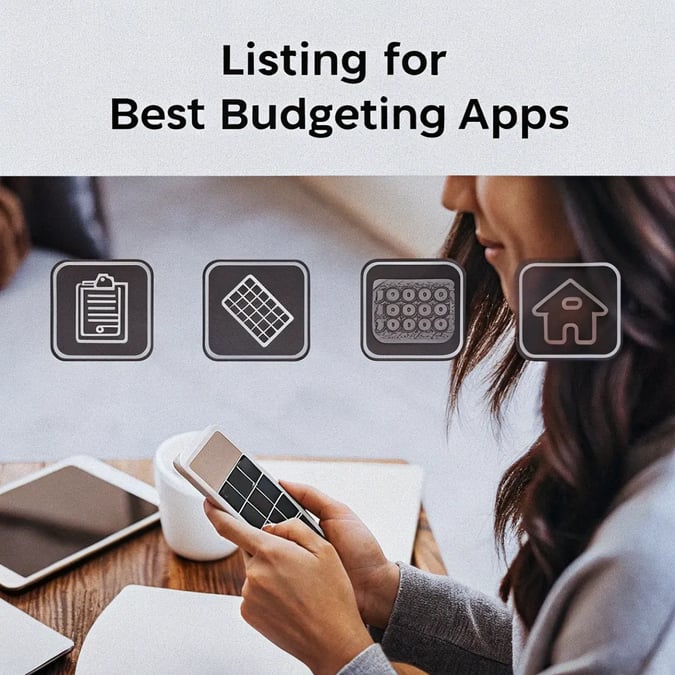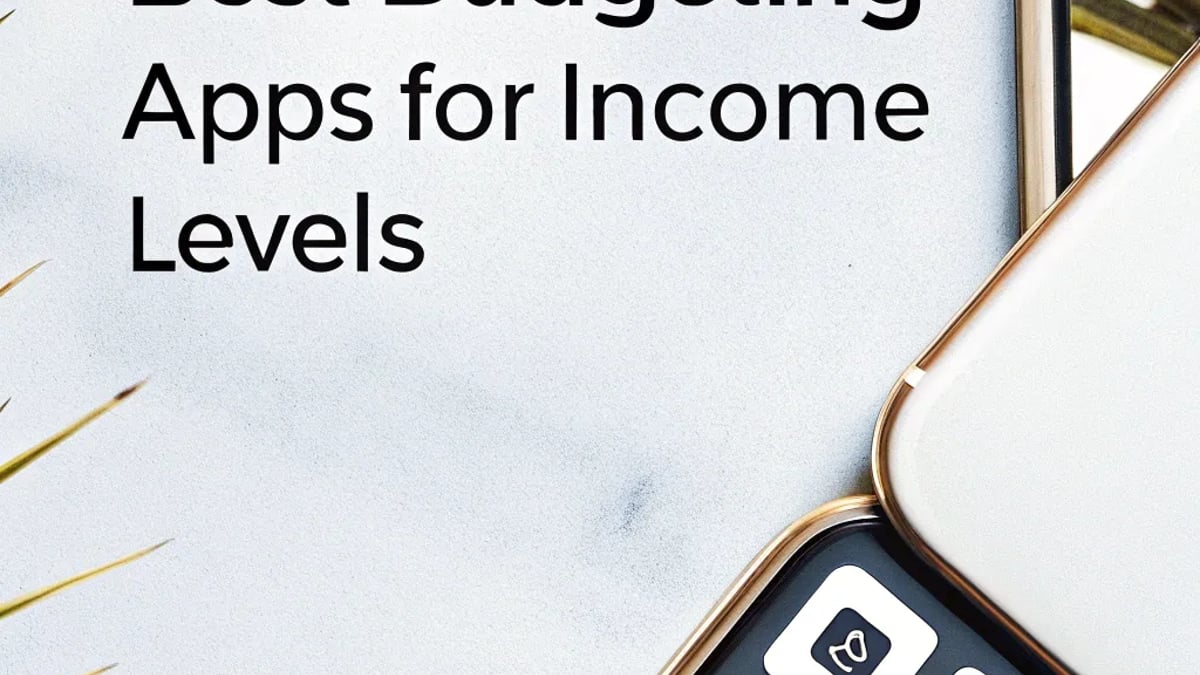
Managing your money effectively has never been more important—or easier, thanks to the explosion of budgeting apps designed for various financial situations. Whether you're living paycheck to paycheck or managing substantial investments, there's a digital solution tailored to your needs in 2025. The right budgeting app can transform your financial health, providing clarity and control regardless of your income bracket.
How Income Levels Affect Budgeting Needs
Not all budgeting approaches work for everyone. Your income significantly influences which financial tools will serve you best. Someone earning $30,000 annually faces different challenges than someone making six figures, though both need effective money management systems.
"The biggest misconception is that budgeting tools are one-size-fits-all," says Melissa Rodriguez, a financial advisor at Capital Planning Associates. "A household earning $40,000 needs different features than one earning $140,000, though the fundamental principles remain the same."
Low-Income Budgeting Priorities

For those earning under $40,000 annually, budgeting apps need to excel at:
- Expense tracking with minimal fees
- Cash flow management for irregular income
- Bill payment scheduling and reminders
- Emergency fund building features
- Access to financial education resources
According to recent data from the Financial Health Network, approximately 63% of Americans living on lower incomes struggle with day-to-day expenses, making real-time spending visibility crucial.
Middle-Income Budgeting Priorities
Households earning $40,000-$100,000 typically benefit from apps that offer:
- Debt reduction strategies and tracking
- Goal-based savings features
- Basic investment integration
- Tax planning capabilities
- Family expense sharing
High-Income Budgeting Priorities
Those earning above $100,000 often require more sophisticated tools:
- Investment portfolio integration
- Tax optimization features
- Estate planning considerations
- Multiple account management
- Advanced reporting and analytics
Top Free Budgeting Apps for 2025
Free doesn't mean ineffective. These no-cost options deliver impressive functionality for budget-conscious users.
Mint: Best Overall Free Option
Mint remains a powerhouse in 2025, especially after its recent platform overhaul. The app now offers improved categorization accuracy and a more intuitive interface.
Key Features:
- Automatic transaction categorization
- Bill payment tracking and reminders
- Credit score monitoring
- Basic investment tracking
- Customizable budget templates
Mint works particularly well for lower and middle-income users who need comprehensive visibility without complex features. The app creates a personalized spending plan that adjusts in real-time based on your income and expenses.
One limitation: the free version displays ads, which some users find distracting.
EveryDollar: Best for Zero-Based Budgeting
Dave Ramsey's budgeting app continues to shine for those who prefer assigning every dollar a purpose.
Key Features:
- Simple, intuitive interface
- Fund allocation visualization
- Debt snowball tracking
- Baby steps progress monitoring
- Manual transaction entry (automation requires paid version)
EveryDollar works exceptionally well for those with irregular income patterns, making it popular among gig workers, freelancers, and seasonal employees.
Best Paid Budgeting Apps Worth the Investment
For those willing to invest in their financial management, these paid options deliver premium features that justify their cost.
YNAB (You Need A Budget): Best for Proactive Budgeting ($14.99/month or $99/year)
YNAB's philosophy—give every dollar a job—creates financial intentionality that users swear by. The 2025 version introduces AI-powered insights that predict potential budget issues before they occur.
Key Features:
- Real-time budget adjustments
- Goal tracking with visual progress indicators
- Debt paydown planning
- Financial habit building tools
- Comprehensive educational resources
YNAB claims users save an average of $6,000 in their first year. While that figure likely varies significantly by income level, the structured approach works well for middle-income households trying to break the paycheck-to-paycheck cycle.
Last Tuesday, YNAB rolled out a new feature specifically designed for variable income earners—something I've been waiting for since starting freelance work last year.
Personal Capital: Best for High-Income Earners ($49.99/month)
Personal Capital blends budgeting with wealth management, making it ideal for those earning six figures or managing substantial assets.
Key Features:
- Investment portfolio analysis
- Retirement planning tools
- Net worth tracking
- Fee analyzer for investment accounts
- Cash flow management
The app's holistic approach to financial management makes it particularly valuable for high-income professionals juggling multiple financial priorities. Its retirement planning simulator is especially helpful for visualizing different scenarios based on saving rates, retirement age, and expected expenses.
I've been using Personal Capital for about eight months now, and while I don't utilize all its investment features, the expense tracking alone has helped me identify nearly $320 in unnecessary subscriptions.
Specialized Budgeting Apps for Specific Needs
Sometimes your financial situation requires more targeted solutions than general budgeting apps provide.
Goodbudget: Best for Couples and Families ($8/month or $70/year)
Built on the envelope budgeting system, Goodbudget excels at helping households manage shared finances.
Key Features:
- Syncing across multiple devices
- Shared envelope budgets
- Debt tracking visualization
- Annual financial reports
- Spending pattern analysis
The app's collaborative approach makes it particularly effective for couples with different spending habits or financial priorities. Its visual envelope system provides clear boundaries that help prevent overspending in specific categories.
Honeydue: Best for Couples with Separate Finances (Free with optional tips)
For partners who maintain some financial separation, Honeydue offers the perfect balance of transparency and privacy.
Key Features:
- Selective account sharing
- Bill reminders and splitting
- In-app chat about transactions
- Joint goal setting
- Customizable privacy settings
The app allows couples to decide exactly what they share, making it ideal for relationships where complete financial merging isn't desired or practical.
How Do You Choose the Right Budgeting App?
Selecting the best budgeting app depends on several factors beyond just your income level.
Consider Your Financial Goals
Your immediate financial objectives should guide your choice:
- Debt reduction? Look for apps with strong payoff planning features
- Saving for specific goals? Prioritize apps with goal tracking and visualization
- Investment growth? Choose apps with portfolio integration
- Financial education? Select platforms with robust learning resources
Evaluate Your Technology Comfort Level
Some apps offer power at the expense of simplicity. Be honest about what interface complexity you'll actually use consistently.
"The best budgeting app is the one you'll actually use," notes financial educator Chris Browning of the Popcorn Finance podcast. "An app with every feature imaginable is worthless if you abandon it after two weeks because it's overwhelming."
Test Drive Before Committing
Most paid apps offer free trials ranging from 7-30 days. Take advantage of these periods to determine if the app aligns with your financial style before investing.
I spent about three weeks testing different options before settling on my current app. The time investment was worth it considering how much I use the tool daily.
What About Income Volatility?
For the growing number of Americans with irregular income—freelancers, gig workers, commission-based employees—budgeting presents unique challenges. Some apps handle this reality better than others.
Best Apps for Variable Income
- YNAB - Excels at helping users budget based on money actually received rather than anticipated income
- Copilot - Uses AI to adapt to income fluctuations and provide realistic spending guidance
- Monarch Money - Offers flexible budgeting periods beyond the standard month
According to the Financial Health Network's 2024 Pulse report, approximately 36% of American households experience significant income volatility month-to-month. This reality makes traditional budgeting approaches challenging.
"With variable income, the key is building a buffer month," explains financial coach Valencia Bembry. "The right app should help you work toward having last month's income pay this month's bills."
How Much Should You Spend on a Budgeting App?
The question of whether to pay for a budgeting app depends largely on your financial situation.
As a general guideline:
- If you're struggling financially, start with free options
- If you're financially stable, consider whether paid features would save you money overall
- If you have complex finances, premium tools often pay for themselves through optimization
Some financial institutions now offer comprehensive budgeting tools integrated with their banking apps. Check if your bank provides these services before paying for a separate solution.
Can Budgeting Apps Replace Financial Advisors?
While budgeting apps have become increasingly sophisticated, they serve a different purpose than human financial advisors.
"Apps excel at tracking, categorizing, and visualizing your money," explains certified financial planner Sophia Martinez. "What they can't do is provide the contextual judgment, emotional support, and personalized strategy that comes from professional advice."
For major financial decisions or complex situations, consider using budgeting apps alongside professional guidance rather than as a replacement.
Budgeting Apps and Privacy Concerns
With financial data being among your most sensitive personal information, privacy considerations are paramount when choosing a budgeting app.
Security Features to Look For:
- Bank-level encryption (256-bit or higher)
- Two-factor authentication
- Biometric login options
- Clear data sharing policies
- Options to export and delete your data
Most reputable budgeting apps use read-only connections to your financial accounts, meaning they can see but not move your money. Still, reviewing the security practices of any financial app before connecting your accounts is essential.
How Are Budgeting Apps Evolving in 2025?
The budgeting app landscape continues to evolve rapidly. Several trends are shaping the future of these financial tools:
AI-Powered Insights
Machine learning now enables apps to identify spending patterns and provide increasingly personalized recommendations. For example, Monarch Money's new AI assistant can suggest specific budget adjustments based on your historical spending and upcoming financial obligations.
Open Banking Integration
The implementation of open banking standards is making data sharing between financial institutions and apps more secure and reliable. This means more accurate transaction data and fewer connection issues.
Behavioral Finance Features
Apps are increasingly incorporating behavioral psychology to help users build better financial habits. Qapital, for instance, uses behavioral economics principles to make saving more automatic and less painful.
What Do Users Actually Want?
According to a recent LearnLux survey of 2,000 consumers across all income levels, the most desired budgeting app features include:
- Automatic categorization of expenses (78%)
- Bill payment reminders (72%)
- Customizable budget categories (65%)
- Goal tracking visualization (61%)
- Financial education resources (58%)
Interestingly, preferences varied significantly by income level. Lower-income respondents prioritized cash flow management and bill payment features, while higher-income users valued investment integration and tax planning capabilities.
Frequently Asked Questions: Which Budgeting App Is Right for My Situation?
Choosing the right budgeting app can feel overwhelming with so many options available. Here are answers to common questions about matching apps to specific financial situations:
Q: I'm living paycheck to paycheck. Which app would help me most?
A: Start with a free option like Mint or EveryDollar's basic version. These apps provide essential expense tracking and can help identify areas where you might cut back. Focus on apps that offer bill payment reminders to avoid late fees and overdrafts.
Q: I have significant debt to pay down. Which app should I use?
A: YNAB or Debt Payoff Planner would be particularly useful. Both offer visual debt reduction strategies and can help you implement either the avalanche method (paying highest interest debt first) or the snowball method (paying smallest balances first).
Q: I'm saving for multiple goals simultaneously. Which app works best?
A: Qapital or Monarch Money excel at multi-goal tracking. Both allow you to create separate savings buckets with visual progress indicators and can automatically allocate funds based on your priorities.
Q: We're a two-income household with shared and separate expenses. What should we use?
A: Honeydue or Zeta are designed specifically for couples with mixed financial arrangements. Both allow customizable sharing of accounts and expenses while maintaining privacy where desired.
Final Thoughts
The best budgeting app ultimately depends on your unique financial situation, goals, and preferences. While income level provides a useful starting point for narrowing your options, factors like financial complexity, technological comfort, and specific objectives should guide your final choice.
Whatever app you select, consistency in use matters more than features. Even the most sophisticated budgeting tool only works when regularly engaged with and trusted as part of your financial routine.
Disclaimer: This article is for informational purposes only and does not constitute financial advice. The budgeting apps mentioned are based on current information as of early 2025, but features and pricing may change. Always conduct your own research before making financial decisions or sharing sensitive financial information with any application.
Tags

About Evan L. Chamberlain the Author
Evan L. Chamberlain is a seasoned personal-finance strategist with over 15 years of experience in helping individuals maximize their savings and efficiently manage debt. His approachable insights on budgeting and investment have empowered thousands to take control of their financial futures.
Recommended Articles
2026’s Most Talked-About Glasses for Women Over 60
Discover the latest eyewear trends for women over 60 in 2026, featuring bold frames, vibrant colors, and health-conscious designs.
The 2026 Senior Walking Aids Experts Recommend for Safety and Comfort
Explore expert-recommended walking aids for seniors in 2026, ensuring safety and comfort while enhancing mobility and independence.
How Rent-to-Own Homes Can Help You Build Equity Faster
Discover how rent-to-own homes enable faster equity building, providing a unique pathway to homeownership without immediate purchasing pressure.
Mortgage Relief Grants You May Qualify for in 2026
Explore available mortgage relief grants for 2026. Find out how to qualify for financial support to ease your home-related challenges.
Grants That Help Single Moms Buy Homes in 2026
Discover grants for single moms to buy homes in 2026. Learn about essential programs designed to ease the journey to homeownership.




